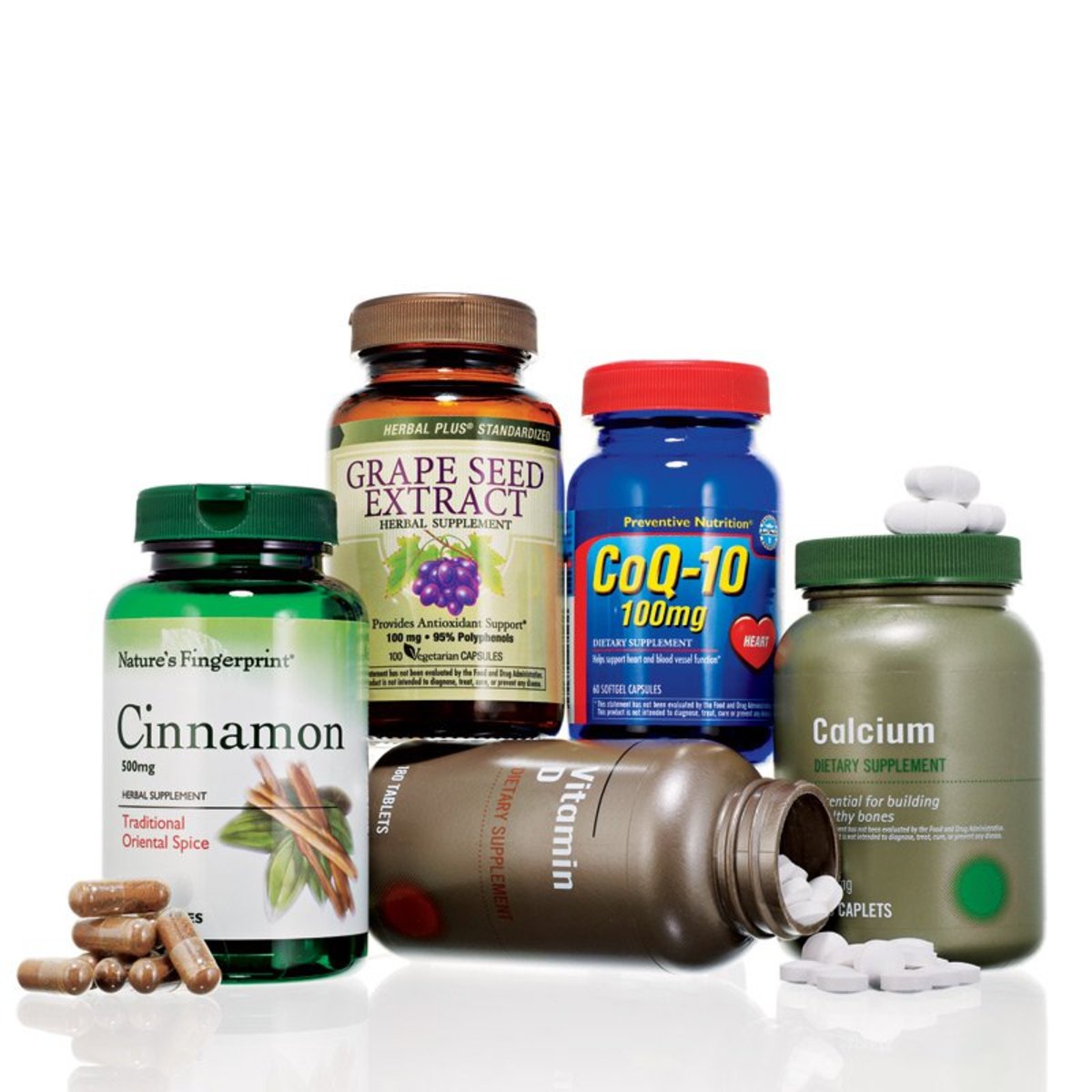5 Health Supplements That Can Improve Your Overall Well-Being

1. Omega-3 Fatty Acids
Omega-3 fatty acids are essential fats that our bodies need but can't produce on their own. They are found in fatty fish, such as salmon, as well as in flaxseed and chia seeds. Omega-3 fatty acids have been shown to help reduce inflammation, lower blood pressure, and improve brain function. They are also important for heart health.
How to Take Omega-3 Fatty Acids:
- Eat fatty fish at least twice a week
- Add flaxseed or chia seeds to your diet
- Take a fish oil supplement
Pros:
- Can improve heart health
- May reduce inflammation
- May improve brain function
Cons:
- May interact with blood-thinning medications
- May cause digestive upset
- May have a fishy aftertaste
2. Probiotics
Probiotics are live bacteria and yeasts that are good for your digestive system. They can help improve gut health, boost the immune system, and even improve mental health. Probiotics are found in fermented foods, such as yogurt, kefir, and sauerkraut, as well as in supplement form.
How to Take Probiotics:
- Eat fermented foods
- Take a probiotic supplement
Pros:
- Can improve gut health
- May boost the immune system
- May improve mental health
Cons:
- May cause digestive upset
- May interact with certain medications
- May not be effective for everyone
3. Vitamin D
Vitamin D is an important nutrient that helps regulate calcium and phosphorus absorption in the body. It also plays a role in immune function and bone health. While our bodies can produce vitamin D when we're exposed to sunlight, many people don't get enough. Vitamin D is found in fatty fish, egg yolks, and fortified foods, as well as in supplement form.
How to Take Vitamin D:
- Get regular sun exposure
- Eat foods rich in vitamin D
- Take a vitamin D supplement
Pros:
- Important for bone health
- May improve immune function
- May reduce the risk of certain diseases
Cons:
- May interact with certain medications
- May cause nausea or vomiting
- May lead to vitamin D toxicity if taken in excess
4. Magnesium
Magnesium is a mineral that plays a role in over 300 enzymatic reactions in the body. It's important for muscle and nerve function, as well as heart health. Magnesium is found in leafy green vegetables, nuts, and whole grains, as well as in supplement form.
How to Take Magnesium:
- Eat foods rich in magnesium
- Take a magnesium supplement
Pros:
- Important for heart health
- May improve sleep quality
- May reduce anxiety and depression
Cons:
- May cause digestive upset
- May interact with certain medications
- May lead to magnesium toxicity if taken in excess
5. Zinc
Zinc is an essential mineral that plays a role in immune function, wound healing, and DNA synthesis. It's found in meat, seafood, and legumes, as well as in supplement form. While most people get enough zinc from their diet, some may need to supplement.
How to Take Zinc:
- Eat foods rich in zinc
- Take a zinc supplement
Pros:
- Important for immune function
- May improve wound healing
- May reduce the risk of age-related diseases
Cons:
- May cause digestive upset
- May interact with certain medications
- May lead to zinc toxicity if taken in excess
FAQs
1. Are health supplements safe?
Most health supplements are safe when taken as directed. However, some may interact with certain medications or cause side effects. It's important to talk to your healthcare provider before taking any new supplement.
2. Can health supplements replace a healthy diet?
No, health supplements should not replace a healthy diet. While they can help fill in nutritional gaps, it's important to eat a balanced diet that includes a variety of fruits, vegetables, whole grains, and lean protein.
3. How do I choose a high-quality supplement?
Look for supplements that have been certified by a third-party organization, such as the United States Pharmacopeia (USP) or ConsumerLab.com. These organizations test supplements for purity, potency, and quality.
4. Can I take multiple supplements at once?
It's generally safe to take multiple supplements at once, but it's important to talk to your healthcare provider before doing so. Some supplements may interact with each other or with certain medications.
